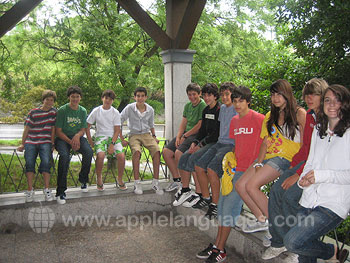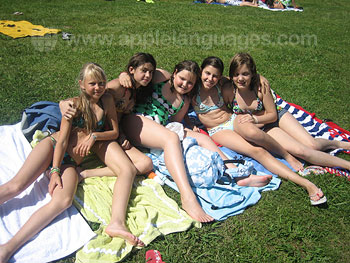Spanish course for Young Students in San Sebastián, Spain
(10-13)The Spanish course for Young Students in San Sebastian is located in the village of Urnieta, just 10km from the city. This is an ideal location in which to learn Spanish and enjoy the wide range of activities and facilities on offer.
Photos
Details
20 Spanish lessons per week + activities and excursions* + full-board accommodation in dormitories with 6 beds and individual closets for each student. Bunk mates are chosen by the students themselves on the evening of the first day; children may only stay in age-appropriate groups with peers of the same gender. Students share gender-specific toilet and shower facilities, located just down the hall from the dormitories. Each dormitory has a monitor who acts as chaperone during evening activities - these monitors are on-call at all times and can provide 24-hour care to the children. Students receive 3 meals and 2 snacks each day, and can use the camp’s laundry service once a week.
Spanish lessons take place between 09:45 - 14:00, with a 20-minute snack break in between. There is a maximum of 13 students per class, giving each child a highly personalised language experience. Each day there is an hour’s Camp Club session after Spain classes. During these lessons, students prepare a themed project that is presented on Friday mornings in the camp’s theatre. Themes include Journalism Club, Music Club, Science Club, Theatre Club, and Dance Club. Course materials are included in the cost of the programme.
Students can choose to book the full programme, lessons and activities, or just tuition at our camp. Students booking tuition-only or non-residential programmes can benefit from a daily supervised shuttle service to and from camp each day.
Activities are included in the programme price when booking the residential and non-residential packages. These activities are supervised by qualified staff or instructors; designed to be fun and age-appropriate, they can include:
- Sports sessions e.g. football, volleyball, Basque pelota, or basketball
- Talent shows
- Face-painting
- Camp Olympics
- Arts & crafts
- Games nights in the camp’s games room
- Hiking
- Beach time
- Trips to local amusement parks
- Weekday or weekend excursions to local points of interest such as Santa Clara Island, the Old Town, and neighbouring Basque villages.
Did you know? Parents can arrange adult courses for themselves at our school, while children enjoy their specialised programme at our camp in Urnieta.
Suitability
This course is suitable for students of any nationality aged 7 - 15. The programme is suitable for students of any ability, even complete beginners.
If you want to have fun, improve your Spanish skills, meet students from across the world, and experience Spanish culture in a beautiful coastal location, this is the course for you!
School
Lessons for children take place in a specialist campus just 10 minutes away from San Sebastian’s centre. Surrounded by mountains, with the city’s breaches and rivers within close proximity, the camp is a fully-equipped educational centre which provides students with a safe and controlled learning environment. The camp is secured and locked by the director each night, and there is a medical emergency room just 5 minutes’ walk away, giving 24-hour professional medical assistance should it be needed.
Features include: 2 football fields; 4 basketball courts; a volleyball court; a gymnasium; an indoor pelota court; a theatre; a small cinema and TV room; a multi-media centre with 30 computers; a games room containing ping-pong tables, foosball tables, board games, sofas, and an arts& crafts area; a cafeteria and kitchen; and a camp store with souvenirs, postcards, and snacks.
Lessons take place in classrooms located on the campus and are conducted entirely in Spanish. Teachers are trained to provide entertaining and immersive tuition to young students, and learning is supplemented by the daily activity programme. Activities are also conducted in Spanish, and students are encouraged to use their Spanish when speaking to one another as much as possible.
San Sebastian
Referred to by locals as Donostia, San Sebastian is one of Spain’s best-known cities and a favourite with both national and international tourists alike. Though distinctly urban, the surrounding mountains and green spaces within the city give a rural twist, while its three beaches provide plenty of opportunities for relaxation and sunbathing. Swimming in the sea is a favoured pastime of the locals at La Concha and Ondarreta beaches, whilst Zurriola is the hot-spot for surfing and beach sports such as volleyball.
In its history, San Sebastian has been rebuilt several times: in 1489 after a ravaging fire, in 1721 after shelling by French troops, in 1813 after sacking by British troops during the Peninsular War, and again in the 1990s as part of a makeover initiative spearheaded by the diputación. Despite this, each time the city has dusted itself off and repaired itself. In line with this unwavering positive spirit, San Sebastian is noted for its yearly festivals and carnivals, including the International Film Festival, the week-long fireworks competition Semana Grande, and Musical Fortnight, 15 days of classical music concerts in various locations around the city.
As capital of the Basque county of Gipuzkoa, San Sebastian is a bilingual location. Not everyone in San Sebastian speaks Basque, though many natives embrace the distinct cultural identity of the region. One aspect of this unique culture is its obsession with food - in most bars you will find signs for pintxos (lit. ‘spike’; pronounced ‘pinchos’), which are small bite-sized snacks similar to tapas, but with a Basque flair. The main difference between pintxos and tapas is the pintxo’s characteristic skewer or toothpick, which usually fixes the snack to a piece of bread. In San Sebastian especially, and in other cities in the region, ‘pintxo crawls’ are common - groups move from bar to bar, ordering a drink and a snack in one location before moving on to another for more delicious fare.
Another food-based quirk of Basque culture is the gastronomic society, or txoko. The first such society opened in San Sebastian in 1870 - before this, Basques had somewhat of a tradition of meeting with friends and family to eat and drink and share in one another’s company. The txokos formalised this into something different. Gastronomic societies of today gather to experiment with traditional recipes, revive forgotten favourites, and enjoy fresh local produce.
How to get there
A transfer service on arrival and/or departure at San Sebastian airport can be arranged for an additional fee. We may also be able to arrange extra nights on arrival and/or departure to fit in with students’ flights.
Students should plan to arrive in San Sebastian on the Sunday before their lessons are due to start and leave on the Saturday after their lessons have finished. Students not booking accommodation should arrive at the camp on the Monday their lessons start and leave on the Friday their lessons finish.
Location of our school in San Sebastian
Prices for San Sebastian
Choose your course below to view our prices in pounds sterling (GBP), US dollars (USD) or euros (EUR).

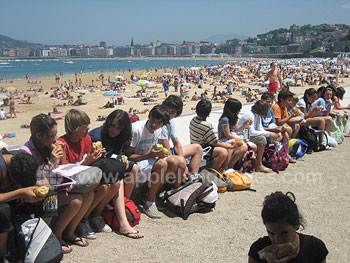
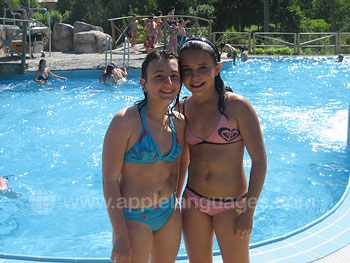
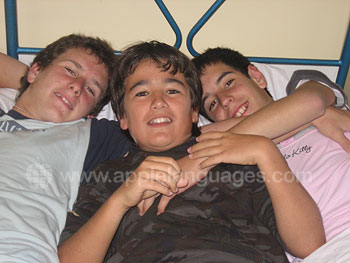
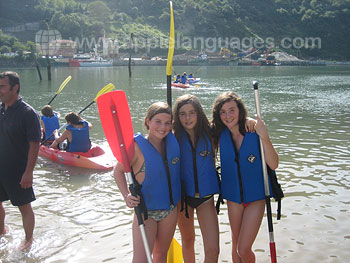









 Company Number: 08311373
Company Number: 08311373